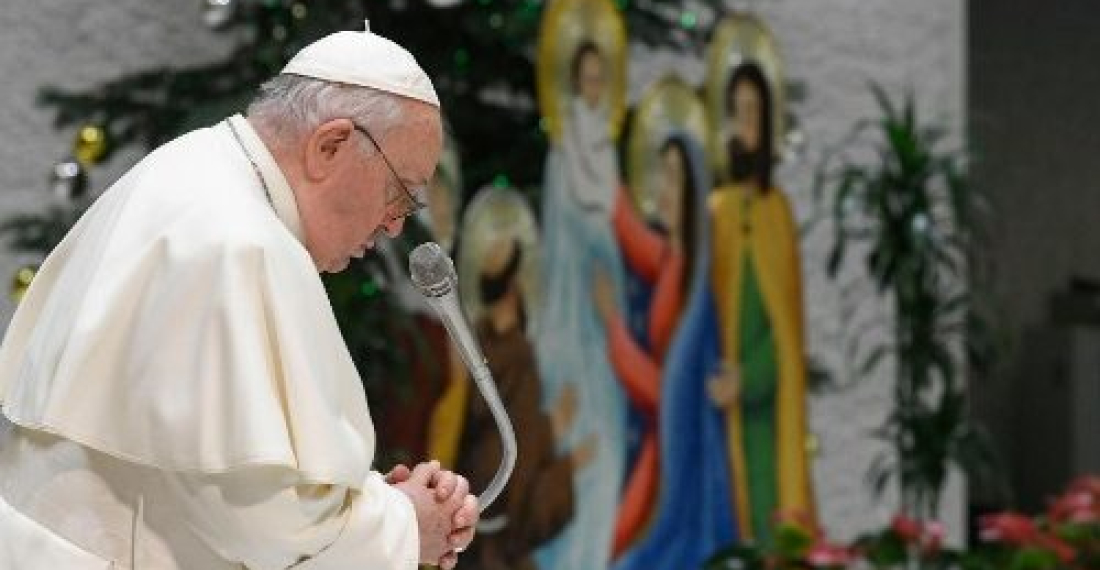At the end of his weekly General Audience, Pope Francis prays for those suffering from violence in Palestine, Israel and Ukraine, and asks for prayers for an end to all war.
Speaking at the end of his General Audience on Wednesday (27 December), Pope Francis renewed his appeal for peace in the Holy Land and Ukraine.
“Please, do not forget to pray for those suffering the terrible consequences of violence and war,” he said.
“Let us pray especially for martyred Ukraine and for the populations of Palestine and Israel. War is an evil. Let us pray for an end to war.”
Pope Francis has been calling for a humanitarian ceasefire in Gaza since 29 October.
In his traditional Urbi et Orbi message on Christmas Day, the Pope pleaded for "an end to the military operations with their appalling harvest of innocent civilian victims" and called for "an opening to the provision of humanitarian aid" in Gaza.
He also said that his "heart grieves for the victims of the abominable attack of 7 October," and he repeated his "urgent appeal for the liberation of those still being held hostage.”
The Pope expressed his hope that sincere dialogue with strong political will and international support might lead to a resolution of the "Palestinian question."
In his Urbi et Orbi address, Pope Francis also prayed for an end to the war in Ukraine.
“Contemplating the Baby Jesus,” the Pope said, “I implore peace for Ukraine.”
“Let us renew our spiritual and human closeness to its embattled people,” he urged, “so that through the support of each of us, they may feel the concrete reality of God’s love."






